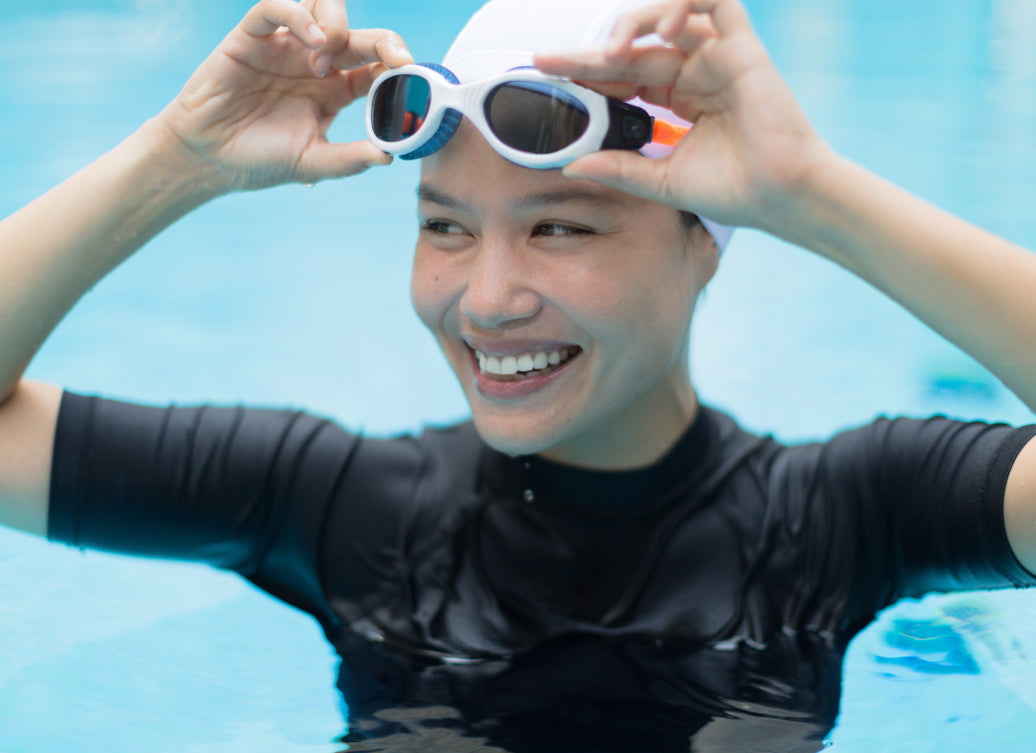
If you’re prone to dry skin, eczema or psoriasis and love a dip in the pool, it’s definitely worth taking a tip from the pro swimmers and protecting your skin from the chlorine that can make skin itchy and inflamed!
Let’s talk chlorine! On the one hand: an effective antimicrobial, necessary to keep swimming pools safe. On the other: a skin irritant. How do you keep swimming, while protecting your skin from the dreaded chlorine itch?!
Chlorine, even at the considerable dilution required to keep a public swimming pool clean, does not do good things to skin. Yes, it effectively neutralises the bad bugs that would otherwise take over the water, leaving swimmers at risk of tummy upsets, fungal infections or even viruses like Covid-19, but it also damages the natural barrier which keeps the skin moisturised and healthy.
For most people, washing the water off thoroughly after a quick swim is sufficient to swerve the chlorine problem, but for those who linger longer in the water and, even more significantly, those with an already-compromised skin barrier function, the damaging effects of chlorine on the skin are harder to avoid. But not impossible! In fact, professional swimmers who have regular, prolonged contact with chlorinated swimming pool water are well used to having to protect their skin.
How do they do it? A combination of strategies, which together go a long way to mitigate the dehydrating and irritant effects of pool water chemicals.
Here are our seven pro steps to protect your skin from chlorine:
- Shower thoroughly BEFORE swimming. It might seem counter-intuitive, but getting your skin and hair properly wet before getting in the pool will lessen the amount of chlorine they absorb.
- Pat your skin dry with a soft towel, but leave it ever so slightly damp.
- Apply a barrier cream, salve or oil all over
- Wear a swimming cap or goggles
- Shower thoroughly AFTER swimming as well!
- Wash body and hair with an unperfumed, SLS-free shower gel
- Apply an emollient (an oil or ointment, depending on your preference) all over, immediately after showering.
The question of which barrier to use really depends on what you prefer. Some people choose to apply an unperfumed body oil all over, because it’s quick and easily applied. We’ve had professional swimmers tell us how much they love our Bath & Body Oil before and after their swims! Others find oil a bit messy in the water, and too prone to getting in the eyes.
If you’d rather use an ointment or oil-based barrier cream, you could try a cheap petroleum jelly or a natural ointment like Skin Salvation. Both do the same job of forming a physical barrier between the skin and the water, so that the chlorine is prevented from damaging the epidermis, and moisture is kept in the skin. The difference is really in the actively nourishing effect of an oil and beeswax balm, as compared to a neutral barrier such as paraffin or petroleum jelly.
Recommended products for managing chlorine rash:
Balmonds Skin Salvation
with hemp and beeswax
Bath & Body Oil
with lavender, hemp and olive
